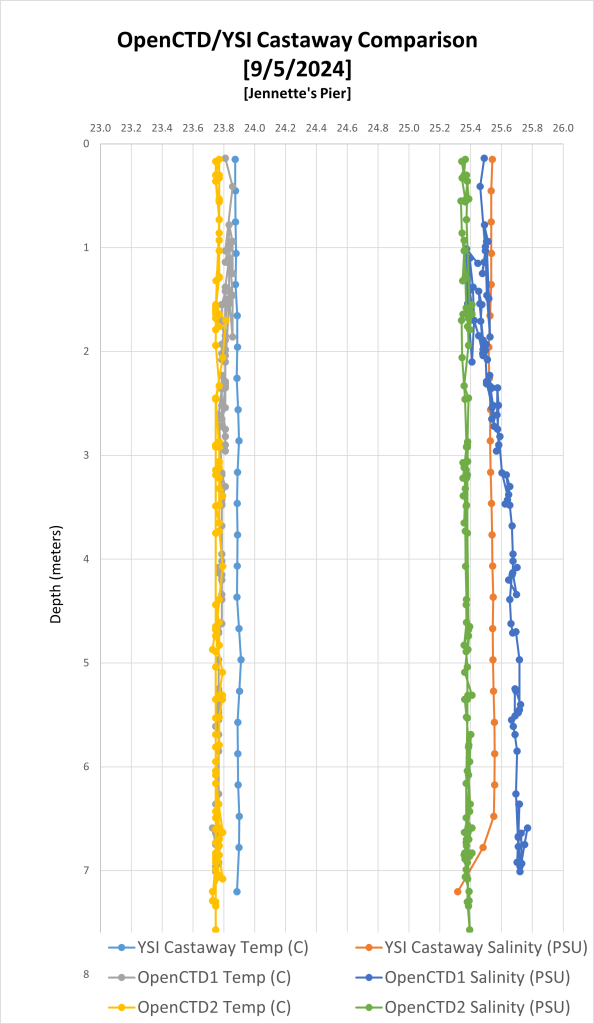For close to two decades now, the venerable YSI Castaway has been the gold standard for small, relatively cheap, handheld CTDs. In the early days of OpenROV, the robot’s little payload bay was sized explicitly to fit a Castaway. When Kersey and I started building the OpenCTD, our benchmark for viability was how well the device stacks up against a YSI Castaway.
It stacks up pretty well, but for a variety of logistical reasons, every time I’ve gone out to do a head to head comparison with the OpenCTD, we’ve either ended up deploying against a more expensive commercial CTD or the Castaway we wanted to test against was out of calibration (in practice, at least half of the small handheld CTDs we’ve tested, not all of which were YSI Castaways, were out of calibration, largely because small labs working on limited research grants don’t often have the resources, time, or personnel to keep up with proprietary maintenance programs).
By good fortune, at the last OpenCTD workshop I ran, we did finally manage to deploy in tandem with a YSI Castaway.

Not too shabby! Our target has been 5% error, but this pair of freshly built CTDs was well below 1% deviation from the commercial sensor package. The unintuitive thing I’ve learned about low-cost instrumentation over the last decade is that the trade-off with cheap DIY sensors is often the speed rather than the accuracy. The OpenCTD is slow and you have to take your time to get good readings, but the data itself is often just as good as commercial alternatives.
This month, I’m in Alaska training students and educators to build, maintain, calibrate, and deploy their own CTDs for a fraction of the cost of commercial units without sacrificing data quality. You can follow along on Instagram (and occasionally Bluesky).
I am beginning to schedule OpenCTD workshops for 2025. If you want to host an OpenCTD building workshop at your institution, please get in touch through Oceanography for Everyone. Over the course of 3 days, we can go from a pile of electronics and hardware store components into working CTDs, ready for research. No experience needed.
Southern Fried Science is free and ad-free. Southern Fried Science and the OpenCTD project are supported by funding from our Patreon Subscribers. If you value these resources, please consider contributing a few dollars to help keep the servers running and the coffee flowing. We have stickers.

